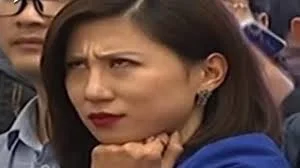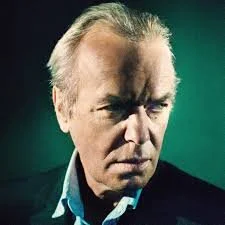Death of the Father (1946-2017)
March 5, 2017
There are two categories of hospital vigils.
The vigil with the happy ending, and the other.
JOYCE CAROL OATES, A Widow’s Story
THE DAYS are dominated by the two long, miserable hours we spend with him, in the corner of a ward on a damp grey Lancashire afternoon. In the morning, we approach our visit with dread. In the evening, we are
still trying to shake off its effects. We keep saying: if it is to end, then let it end quickly.
If I returned to England to have one final conversation with my father, then my trip has been a squalid failure. The only thing he said clearly when I arrived was, "It was me," with the emphasis on the verb, as if he had suddenly realised something about himself after all these years. And then: "I hate it."
The same irascible, awkward personality still tries to explain the world around him with whatever cognitive tools he has left, but he simply can't quite find the words. Occasionally he seems to realise this, and he scratches or taps the side of his head and scowls frustratedly.
He confabulates fact and fantasy. He mistakes his sheets for his clothes and tries to get dressed so he can depart with us. By the end, we are lying to him, telling him that we are just going out for a cup of tea and will be back shortly.
His pain looks unbearable, and I can’t even begin to determine if he feels even slightly better because we are there, or whether there is enough of him left to feel slighted when we leave.
At some point during the last few days, which are now merging into one another, he says "this is taught more". Everything in his countenance and posture suggests he actually means, this is torture.
A kind nurse rules out force-feeding him and putting him on a palliative care regime, and we conclude they have made the decision to let him go as quickly as he can. There will be no interventions, resuscitations, or treatment.
We, his family, are in agreement. Sitting around his bed, we chat quietly, trying not to disturb his equilibrium.
He interjects: "I don't know the moos of the game."
Our garrulous uncle, my father’s brother-in-law, arrives and my father seems to recognise him. On the only occasion he acknowledges me directly, he calls me by my sister’s name.
Our uncle comes, talking with barely an interruption about the old days. It occurs to me that the dynamics of our interactions are roughly the same as they have always been: Our uncle is unable to stop himself talking, and our father throws the conversational equivalent of a hand grenade right at the end, silencing everyone.
To all intents and purposes, only the crude rudiments of our father remain. He asks me whether I have drugged him. He repeatedly asks us why he is here. When we leave, he wants to go with us and tries to drag himself out of bed. He takes off his pants. He wants to get dressed and go elsewhere. He repeats: he doesn't know why he is there. On two or three occasions, he says, "Come on, come on, just go," which seems to coincide with a bowel or bladder movement.
On Saturday, his penultimate day, he is calmer, but clearly in steep decline. He is still trying to say something, though it isn't clear who he is talking to. I still don’t know whether he knows who I am. He stares right through me, and maintaining such consistent eye contact seems very much out of character.
I accept that the man I knew as my father has already gone, and what is left is a blitz of synapses and reflexes, chewing at the stiflingly hot hospital air. I watch him rolling himself an imaginary cigarette and chattering silently to himself. I wish I had the mental strength to talk to him, just in case he could still hear me.
Perhaps he has become a kind of Rorschach test. I think I hear him asking what day his mother died. When his brother arrives, he talks about wanting to fix a roof. I thought I heard him talking about not meaning to kill someone. Are these his anxieties, or mine? I imagine his brain being steadily scrubbed clean, leaving his most piquant, stubborn memories till last.
We have drinks at a pub he used to frequent. Sentimentally, we discuss the idea of keeping a place, and a pint, for our father. Our uncle says he was no saint, and seemed to assume that we were now thinking otherwise. He surprises me by talking about the fights our father used to get into, and the way he bullied weaker people than himself. The conversation turns to strangely familiar names from my childhood, names that punctuated the rows my parents had, including the names of inveterate and long-dead alcoholics: all form a fraction of my father’s life - and solemnly, pompously, I tell myself they should somehow be recorded.
Next day, at the hospital, our father has clearly declined further and doesn’t have much left, and I find myself wondering whether he will be dead by the time I return home. He no longer shows any desire to be raised from his bed. He stirs and tries to lift up his head on a few occasions, but he makes no attempt to communicate. His mouth is now agape, and his breath is uneven and accompanied by a constant gargling noise, caused by the fluid on his lungs.
He stares in what seems to be our direction but his eyes seem empty and unfocused. The nurse tells us he couldn't say how long he has left, but we assume he is just being kind.
I walk out of the ward for what I thought would be the very last time, into the rain. I slow down, fall behind the rest of my family and allow the rain to wash away my tears.
At 9.30 we get the call. Time to say goodbye. No one said a word. We arrived at the hospital through the back doors, let in by the late-shift nurses, and we reached his bedside just in time to watch his eyes slowly close and the spring-taut sinews in his neck shudder one last time as he took his last breath.






